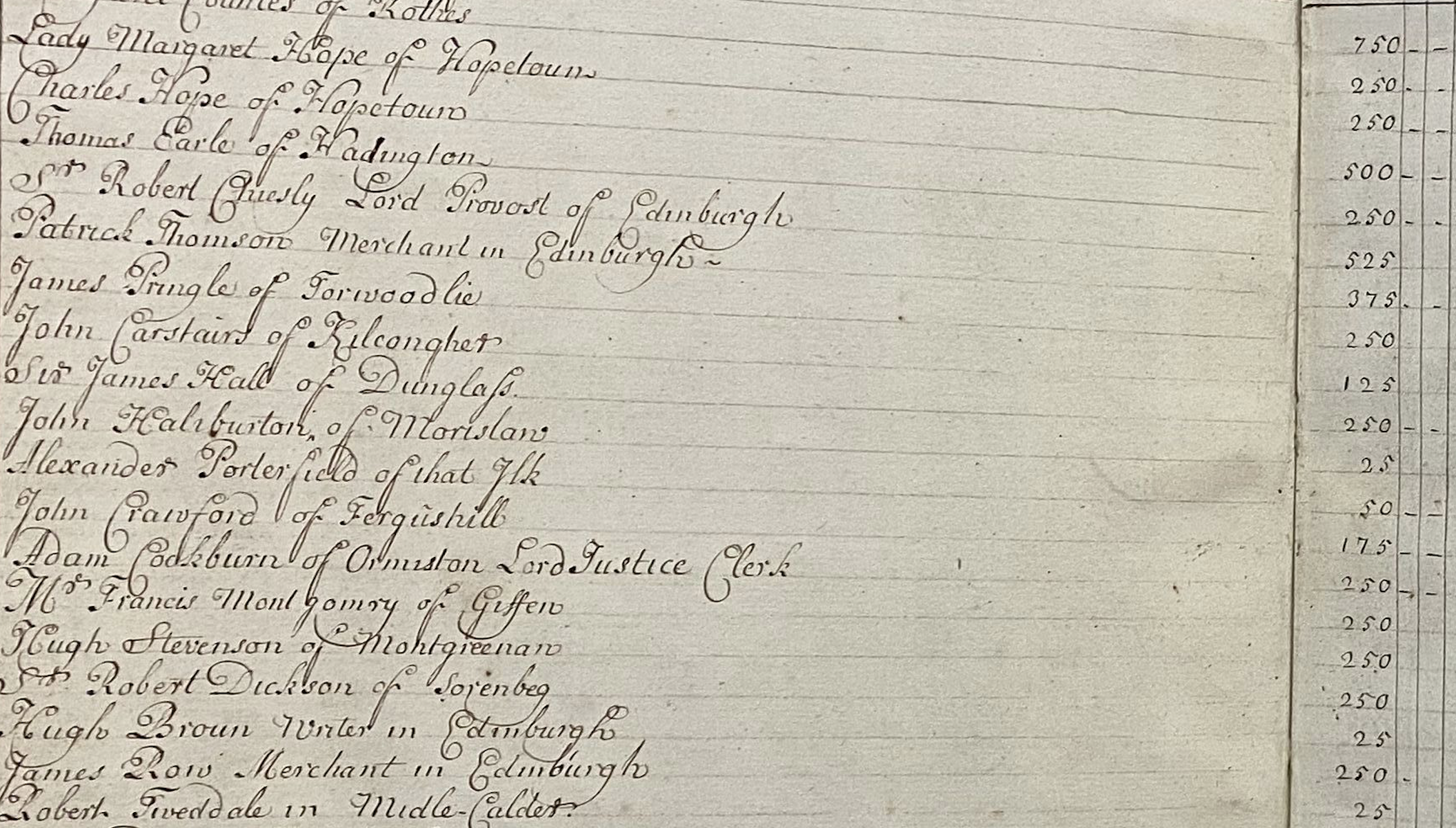
The Company of Scotland
and the
Act of Union (1707)
Fareweel to a’ our Scottish fame,
Fareweel our ancient glory;
Fareweel ev’n to the Scottish name,
Sae fam’d in martial story.
Now Sark rins over Solway sands,
An’ Tweed rins to the ocean,
To mark where England’s province stands-
Such a parcel of rogues in a nation!
What force or guile could not subdue,
Thro’ many warlike ages,
Is wrought now by a coward few,
For hireling traitor’s wages.
…
O would, ere I had seen the day
That Treason thus could sell us,
My auld grey head had lien in clay,
Wi’ Bruce and loyal Wallace!
But pith and power, till my last hour,
I’ll mak this declaration;
We’re bought and sold for English gold –
Such a parcel of rogues in a nation!
– Robert Burns, 1791
Working Papers
The Price of a Nation: The Effect of Financial Incentives on Support for Union in Scotland ( Latest Draft )
Abstract: Under what conditions will elites give up their autonomy and nationhood? In 1707,
Scottish politicians sacrificed their political power by voting to join England to form
the United Kingdom. Despite the significance of this moment, the factors driving the
voting decisions of individual politicians remain in dispute. I construct a novel data set
combining biographical and archival sources to reveal the impact of England’s promised
£398,085 financial package, known as the Equivalent, on individual voting choices. To identify the causal effect of the Equivalent on voting, I leverage the unique historical context in which variation in Scottish parliamentary attendance was driven by idiosyncratic shocks to individual politicians. I then exploit the coincidence of attending parliament in 1695 and eligibility for compensation. I show that politicians who financially benefited from union were at least 30% more likely to vote for union. I present evidence that the Act of Union would not have passed without the promised Equivalent, demonstrating the power of economic incentives to drive radical institutional reform and lasting change.
Opportunists or Patriots? Financial Coalitions and Party Formation
Abstract: To what extent do financial incentives and economic shocks shape the formation of political parties and factions? I identify an episode in British history that reveals the power of financial interests to drive the formation of new political parties. In 1707, the Scottish parliament voted itself out of existence, uniting Scotland and England into a single nation. This radical institutional change could not have occurred without the votes of the New Party; a minority faction that broke away from the nationalistic Country Party in 1704. After constructing a novel dataset from bibliographical and Scottish Archival Records, I investigate the extent to which New Party membership was driven by financial interests. I find robust evidence that politicians who had invested in a failed Scottish joint-stock company were at least twice as likely to join the New Party compared with non-investors.